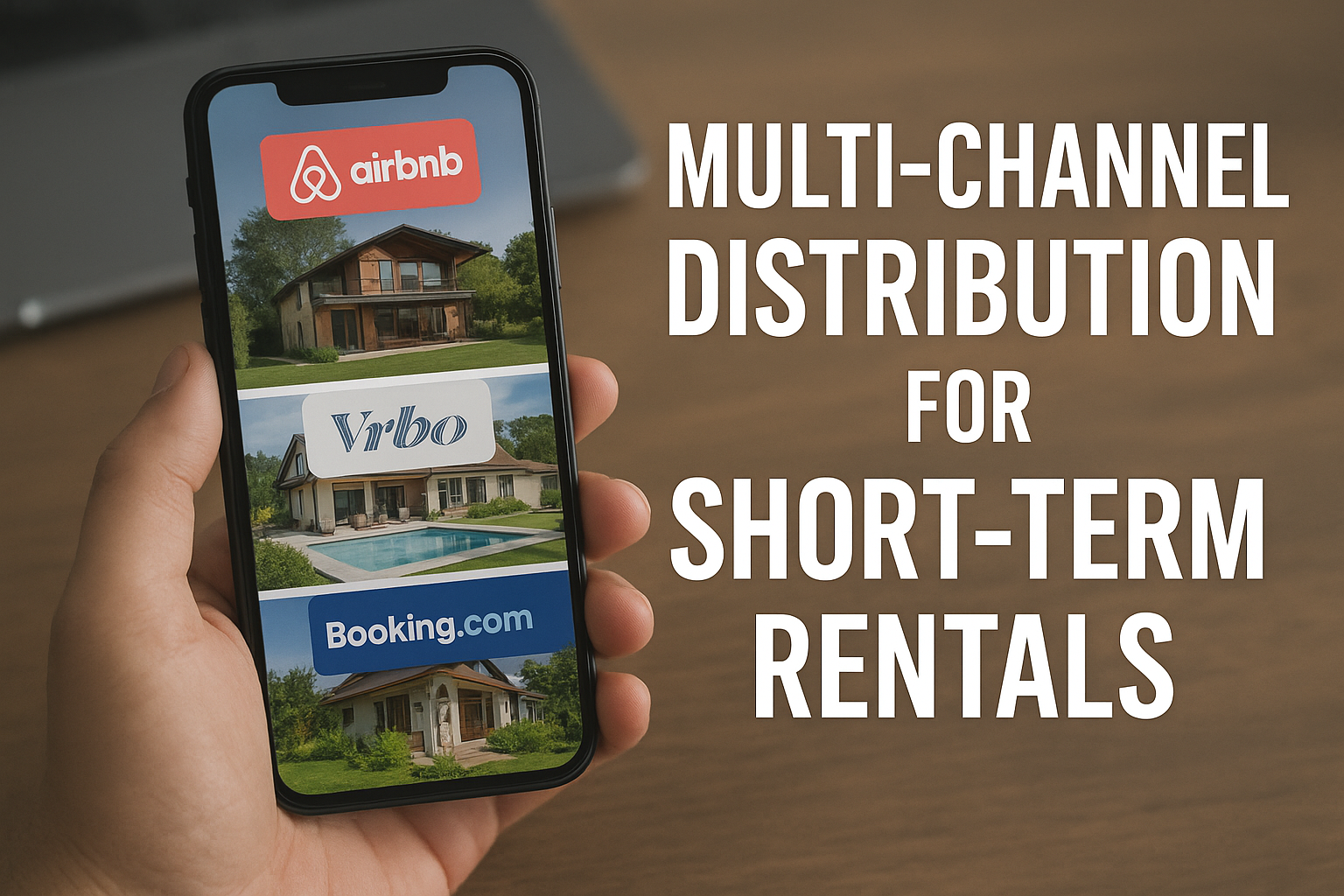Multi-Channel Distribution for Short-Term Rentals
By: Sally Alfaras | Sept. 1, 2025

The short-term rental market continues to grow rapidly, attracting both new hosts and experienced property managers. Yet in this increasingly competitive space, relying on a single booking platform in addition to
direct booking—like Airbnb or Vrbo—can be risky. Platform algorithms shift, guest preferences evolve, and sudden policy changes can affect visibility and revenue.
That’s why more hosts are adopting multi-channel distribution for short-term rentals. This strategy ensures your listings appear across multiple booking platforms, increasing exposure to potential guests and safeguarding your rental income. Whether you're managing one property or a growing portfolio, multi-channel distribution gives you the flexibility and reach needed to thrive in today's dynamic short-term rental market.
What Is Multi-Channel Distribution for Vacation Rentals?
Multi-channel distribution in the short-term rental industry means listing your property on multiple booking platforms instead of relying on a single channel. This approach expands your reach, connects you with different types of travelers, and increases the likelihood of steady bookings throughout the year.
For example, Airbnb, Vrbo, and Booking.com are the most widely used platforms, each with its own loyal customer base. Families may search on Vrbo, business travelers often prefer Booking.com, and leisure guests frequently browse Airbnb. Beyond these, niche platforms like Houfy, WeChalet, or Evolve allow property managers to reach specialized audiences.
In the words of Simon Lehmann, Co-Founder and CEO of AJL Atelier, “Depending on a single channel is a commercial suicide.” By adopting multi-channel distribution, short-term rental hosts safeguard their business, diversify guest sources, and reduce dependence on one platform’s rules or algorithms.
Why Multi-Channel Distribution for Short-Term Rentals Matters
Adopting a
multi-channel distribution strategy provides several advantages for short-term rental hosts and property managers. By expanding beyond a single platform, you not only safeguard your business but also create more opportunities to attract diverse guests.
1. Increased Visibility Across Booking Platforms
Each platform—whether Airbnb, Vrbo, or Booking.com—has its own traffic, algorithms, and guest demographics. By listing on multiple channels, you put your rental property in front of millions of travelers worldwide, significantly boosting visibility.
2. More Bookings and Higher Occupancy Rates
More visibility often translates into more bookings. With listings spread across multiple platforms, your short-term rental will attract a broader pool of guests. Increased demand also gives hosts more flexibility in adjusting nightly rates to maximize revenue.
3. Reduced Risk and Reliance on One Channel
Depending solely on a single
OTA can leave you vulnerable to policy changes, fluctuating search rankings, or sudden platform restrictions. By distributing across multiple channels, you reduce risk and ensure that when one source slows down, others keep generating steady income.
4. Diversified Guest Demographics
Each booking channel attracts different types of travelers. Vrbo tends to draw family groups, Booking.com often caters to business travelers, and Airbnb appeals to leisure seekers. By leveraging multiple channels, you diversify your guest base and ensure long-term stability in your rental business.
How to Build a Multi-Channel Distribution Strategy
A successful strategy goes beyond simply placing your listing on more platforms. To
maximize bookings and revenue, property managers should follow a structured approach:
1. Know Your Target Audience
Understanding your guests is the foundation of multi-channel success. Families often turn to Vrbo, business travelers look to Booking.com, while younger leisure travelers may prefer Airbnb. For luxury rentals, platforms like Homes & Villas by Marriott International are a better fit. Matching your rental type to the right audience ensures each listing performs at its best.
2. Research and Select the Right Rental Platforms
Not all booking sites are created equal. Major OTAs like Airbnb and Vrbo provide broad exposure, but niche platforms such as Houfy, WeChalet, or Evolve allow you to reach specialized audiences. Before choosing multiple channels, compare each platform’s features, service fees, and policies to make sure they align with your business goals.
Helpful starting points:
Best Places to Buy a Vocation Home in Texas
Best Places in Arizona to Buy Vacation Rental Property
10 Best Places to Invest in an Airbnb in Virginia
3. Tailor Listings for Each Channel
Each platform has its own style and search algorithm. Optimize your listings with high-quality photos, engaging descriptions, and clear details about amenities. Adjust language or formatting slightly for each channel so your property stands out in search results.
4. Consider Costs and Commission Structures
Every rental platform charges fees differently—some take a percentage of bookings, while others use upfront subscription models. Understanding how costs impact your net revenue is critical before committing to multiple channels.
Use a Channel Manager to Streamline Operations
Without the right tools, hosts risk double bookings, inconsistent pricing, and communication delays with guests. This is where a
channel manager becomes an essential part of your distribution strategy.
A
channel manager is a software solution that connects your short-term rental listings across platforms like Airbnb, Vrbo, and Booking.com. By syncing calendars and updating availability in real time, it prevents costly double bookings and ensures accurate information across all channels.
Key Benefits of Using a Channel Manager
- Synchronized Calendars – Automatically update availability across multiple channels.
- Consistent Pricing – Align nightly rates and promotions across booking platforms.
- Centralized Guest Communication – Manage inquiries, messages, and reviews in one place.
- Time Savings – Reduce manual work and focus on improving guest experiences.
Recommended Tools for Hosts
Two of the most popular solutions for short-term rental managers are Hostaway and Hostfully. Both platforms integrate with dozens of OTAs, provide detailed reporting, and offer automation features that help property managers scale their operations.
By incorporating a channel manager into your strategy, you gain control, efficiency, and peace of mind—allowing your short-term rentals to stay competitive without the stress of manual oversight.
Best Practices for Managing Listings Across Platforms
Expanding your short-term rental business through
multi-channel distribution requires more than just adding your property to different platforms. To maximize bookings and revenue, you need to actively manage your listings and adapt to each channel’s unique audience. Here are some proven best practices:
1. Optimize Listings for Each Booking Platform
A well-optimized listing is the difference between being overlooked and fully booked. Tailor descriptions, highlight amenities, and use high-quality photos that resonate with the audience on each platform. For example, families browsing Vrbo may look for kid-friendly features, while Airbnb travelers might value unique design or location details.
2. Monitor Performance Regularly
Track how your listings perform across rental platforms by measuring key metrics such as occupancy rate, average daily rate (ADR), and revenue per available rental (RevPAR). Tools like
PriceLabs Portfolio Analytics help hosts analyze booking patterns, identify high- and low-performing listings, and refine multi-channel pricing strategies.
3. Adapt Pricing Based on Market Trends
Dynamic pricing tools such as
PriceLabs allow you to adjust nightly rates automatically across multiple channels. By responding to local demand, seasonality, or special events, property managers can increase occupancy while maximizing revenue. For instance, during large events, demand surges, and automated pricing helps ensure you capture higher nightly rates.
4. Sync Availability with a Channel Manager
A reliable
channel manager ensures your calendars are always accurate and prevents double bookings. By syncing Airbnb, Vrbo, and Booking.com listings in real time, you save time and avoid costly cancellations that could damage your reputation.
5. Encourage Guest Reviews
Positive reviews are vital for improving search rankings and boosting guest trust across booking platforms. Encourage satisfied guests to leave feedback, and respond promptly to reviews to demonstrate excellent service. High ratings translate into more visibility and consistent bookings.
Case Example – How Market Trends Affect Multi-Channel Bookings
One of the biggest advantages of multi-channel distribution is the ability to capture demand when
market trends shift suddenly. A strong example comes from Airbnb’s report on travel demand during Taylor Swift’s Eras Tour in Europe.
During this period, short-term rental demand surged by more than 70% in cities like London, Paris, and Edinburgh. On Airbnb, searches spiked by 1,300% in North America as well, showing how cultural events can dramatically increase bookings.
Hosts with listings spread across multiple rental platforms—such as Airbnb, Vrbo, and Booking.com—were best positioned to capture this demand. By using dynamic pricing tools and syncing availability through a channel manager, they maximized revenue while avoiding overbookings.
This example demonstrates why property managers should diversify across several channels: when demand rises, your listings are visible to a broader range of guests, increasing occupancy and profit.
Conclusion
In today’s competitive short-term rental market, relying on one booking site is no longer enough. By adopting a multi-channel distribution strategy, property managers gain higher visibility, attract more bookings, and reduce the risks that come with depending on a single platform.
Distributing listings across multiple rental platforms such as Airbnb, Vrbo, Booking.com, and niche OTAs allows you to reach different types of guests while ensuring steady revenue. Combined with tools like channel managers and dynamic pricing software, this approach helps hosts optimize performance and scale their business efficiently.
Whether you manage a single property or a growing portfolio, multi-channel distribution for short-term rentals is one of the most effective ways to future-proof your business, increase occupancy, and stay competitive in a fast-changing market.
FAQs on Multi-Channel Distribution for Short-Term Rentals
1. Can I list my short-term rental on both Airbnb and Vrbo?
Yes. Listing your property on both Airbnb and Vrbo is one of the best ways to increase visibility and attract different types of guests. Many successful hosts use multiple rental platforms to boost occupancy and maximize revenue.
2. How can I avoid double bookings across multiple channels?
The easiest way to prevent double bookings is by using a
channel manager. Software solutions like
Hostaway or
Hostfully sync calendars across Airbnb, Vrbo, Booking.com, and other platforms in real time. This ensures your availability is always accurate and saves you from costly cancellations.
3. What are the disadvantages of relying on a single booking platform?
Depending on one platform limits visibility and exposes you to risks like sudden policy changes, algorithm updates, or reduced traffic. A robust distribution strategy reduces this risk by spreading your listings across multiple platforms.
4. Which platforms are best for luxury short-term rentals?
For high-end properties, consider platforms like
Homes & Villas by Marriott International or niche sites that cater to luxury travelers. While Airbnb and Vrbo bring broad exposure, specialized platforms often attract guests seeking premium experiences.
5. What tools can help me manage pricing across channels?
Dynamic pricing tools such as
PriceLabs integrate with most major channel managers. They automatically adjust nightly rates based on demand, seasonality, and local events, helping property managers maximize revenue across all booking platforms.
6. Is multi-channel marketing the same as multi-channel distribution?
Not exactly. Multi-channel marketing usually refers to promoting products or services across various advertising platforms. In the context of short-term rentals,
multi-channel distribution is about listing properties on multiple booking platforms. Together, they create a stronger strategy for attracting guests and maximizing revenue.
Final Thoughts
Success in the short-term rental industry comes down to visibility, consistency, and smart management. A well-designed multi-channel distribution strategy backed by technology not only boosts bookings but also safeguards your revenue and builds guest trust.
Start small by expanding to one or two additional platforms, then scale with the support of a channel manager and pricing tools. With the right approach, your properties won’t just get seen—they’ll get booked.








